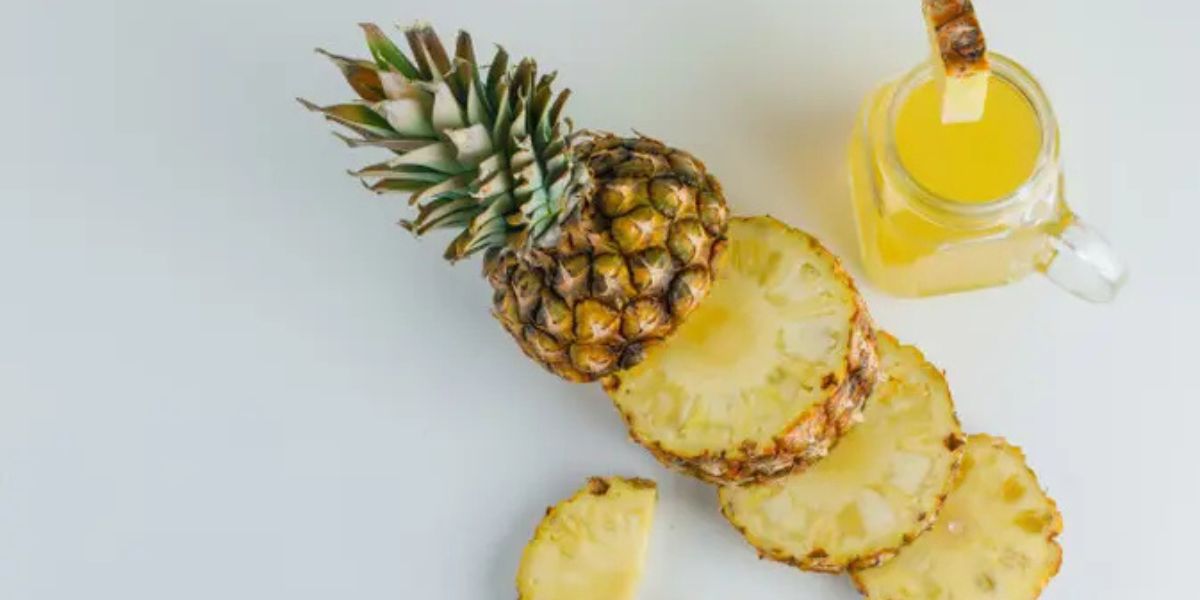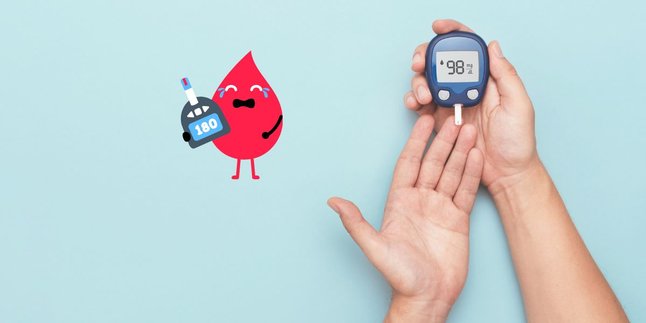Kapanlagi.com - High uric acid, also known as hyperuricemia, has become quite a common health issue in society. The accumulation of uric acid crystals in the joints can cause excruciating pain, swelling, and inflammation, often referred to as gout. Many people are seeking natural solutions to address this problem, and pineapple juice has emerged as an interesting option. But how effective is pineapple juice in lowering uric acid levels? Let’s explore further!
One way to utilize pineapple in lowering uric acid levels is by processing it into fresh juice. Pineapple juice is believed to have extraordinary benefits due to its bromelain content, an enzyme that helps dissolve uric acid and aids in its excretion through urine. Not only that, pineapple is also rich in vitamin C, which plays an important role in the breakdown of uric acid in the body.
Compiled from various sources by Kapanlagi.com on Tuesday (4/2/2025), here are some interesting ways to process pineapple to lower uric acid levels. Let’s take a look!
1. The Content in Pineapple that Helps Lower Uric Acid
Pineapple is a fruit rich in vitamins, minerals, and enzymes that have anti-inflammatory benefits. The main components in pineapple that play a role in lowering uric acid levels include:
1. Vitamin C that Helps Lower Uric Acid
Vitamin C is one of the antioxidants that can help reduce uric acid levels in the blood. This vitamin plays a role in enhancing the excretion of uric acid through urine, thereby reducing the risk of crystal formation in the joints.
2. Bromelain: An Effective Anti-inflammatory Enzyme
Bromelain is a natural enzyme found in pineapple that has strong anti-inflammatory properties. This enzyme helps reduce inflammation and swelling that often occurs in individuals with gout. Some studies also indicate that bromelain can help relieve pain in inflamed joints.
3. Fiber and Minerals that Support Healthy Metabolism
In addition to vitamin C and bromelain, pineapple also contains important fiber and minerals such as potassium that help maintain fluid balance in the body. The fiber in pineapple can aid digestion and support the elimination of waste substances from the body, including uric acid.
2. How to Process Pineapple to Lower Uric Acid
Direct Consumption as a Fresh Snack
Fresh pineapple can be cut and consumed directly as a healthy snack. The content of vitamin C, bromelain, and fiber in pineapple helps digestive health and reduces inflammation in the joints.
Pineapple Juice Without Added Sugar
Fresh pineapple juice without sugar can provide anti-inflammatory benefits and improve body hydration. Adequate fluids help in the excretion of uric acid and relieve pain caused by uric acid crystals in the joints.
Boiled Pineapple or Salad
Pineapple can also be processed into a stew or salad with green vegetables. This becomes a healthy snack that is low in purines and can alleviate uric acid symptoms without worsening the condition.
Avoid Adding Excess Sugar
Adding excess sugar when processing pineapple can increase inflammation. Additionally, pay attention to other food intake, such as avoiding high-purine foods (red meat, offal, and seafood) that can worsen uric acid symptoms.
3. How to Make Pineapple Juice for Gout
Making your own pineapple juice is quite easy. Here are the steps:
- Wash the pineapple thoroughly until the skin is completely free of dirt.
- Cut the pineapple into several pieces, then blend using a blender. You can add a little boiled water if necessary to achieve the desired texture. Avoid or minimize the use of granulated sugar or honey, especially for those with gout.
- Pineapple juice is ready to be served.
- Pineapple Juice Combination for More Effectiveness
To enhance its potential benefits, you can combine pineapple juice with other ingredients such as turmeric or ginger. Both of these spices are known to have anti-inflammatory properties that can help reduce pain and swelling due to gout. The mixture ratio can be adjusted to taste, but always prioritize reasonable measurements.
In addition, pineapple is also suitable to be combined with various other ingredients. Check out the following recipes.
Pineapple Apple Juice
Ingredients:
- 50 grams of apple
- 100 grams of pineapple
- ½ glass of crushed ice
How to make:
- Blend all the ingredients until smooth.
- Serve with crushed ice for a fresher sensation.
Pineapple Watermelon Juice
Ingredients:
- 200 grams of sweet pineapple
- 50 grams of watermelon
How to make:
- Peel the pineapple and watermelon, then cut them into small pieces.
- Blend the pineapple, then pour it into a glass containing watermelon pieces.
- Serve immediately.
Pineapple Radish Candlenut Juice
Ingredients:
- 100 grams of pineapple
- 50 grams of white radish
- 2 candlenuts
- 150 ml of boiled water
How to make:
- Blend all the ingredients until smooth.
- Strain if necessary, then serve.
4. Things to Consider Before Consuming Pineapple for Gout
Be careful, pineapple lovers! Although this tropical fruit is packed with benefits, there are several things you need to pay attention to. Some people may experience allergic reactions to bromelain found in pineapple, such as itching, swelling, or irritation—if this occurs, stop consumption immediately and see a doctor.
Additionally, while pineapple is delicious, don’t overdo it! Consuming too much can disrupt digestion, especially for those with stomach issues, and its acidity can cause irritation.
No less important, for those undergoing treatment, consult your doctor before making pineapple a regular companion on your dining table, as bromelain can interact with certain medications, such as blood thinners and anti-inflammatory drugs. Take care of your health while enjoying the freshness of pineapple, okay!
5. People Also Ask
Can pineapples be consumed every day by people with gout?
Pineapples can be consumed every day in reasonable amounts, around 1-2 servings, to continue providing benefits without the risk of side effects.
Is pineapple juice safe for people with gout?
Pineapple juice is safe to consume, as long as no excess sugar is added. Additional sweeteners can increase uric acid levels in the blood.
Do all types of pineapples have the same bromelain content?
Each type of pineapple contains bromelain, but the levels can vary depending on the variety and ripeness.
How much pineapple consumption is recommended for people with gout?
About 1-2 servings of pineapple per day is sufficient to gain its benefits without causing side effects such as digestive disturbances.
(kpl/srr)
Disclaimer: This translation from Bahasa Indonesia to English has been generated by Artificial Intelligence.












